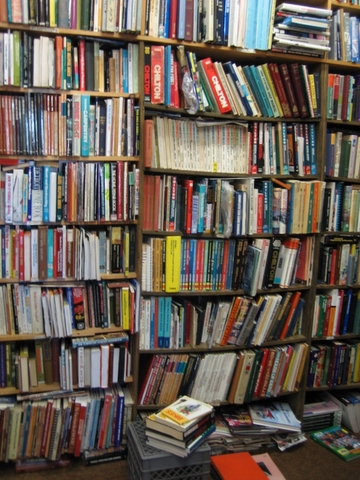Freedom of choice has been a favourite phrase of politicians all over the world in recent years. The problem today is that too much choice causes increasing stress as we try to decide which brands of margarine, pension funds or internet service providers to choose. Most of us resort to just picking one and hoping for the best or sometimes not even choosing.
It's much the same with knowledge. In the past we had a limited number of books to read on a certain subject and they had all been approved by publishers. At school we usually had one book which we read our way through each year. Since that book was part of a national curriculum we all assumed that it contained the truth and nothing but the truth.We seldom had access to books which presented alternative interpretations. History was always presented with a strong national bias and our own country was seldom if ever presented as being "on the wrong side" in a war. If you read school history books from different countries describing the same conflict you wonder if you're reading about the same events. Take a look at encyclopedia entries from different countries and you'll see how villians become heroes depending on the nationality of the authors. Yet in the absence of any alternatives we all accepted our textbooks as the truth.
Today it's much more complicated. On the net we have access to an almost infinite variety of sources when researching; from all countries and from all political viewpoints. Who's telling the truth? Who's biased? Is anyone, even the most eminent professor, objective? When we had a limited choice of sources it all seemed so easy. Today we can see the complexity of most issues and reach the conclusion that there are many truths and no one solution to a problem.
The vast range of information on the net is of course bewildering and the fact that everyone and anyone can contribute is disturbing for many. Clearly there is no real "truth" and that only by reading a variety of accounts can we reach some kind of balanced interpretation. We should treat everything as one writer's contribution to a discussion. Everything is a blog post and you always have the write to comment. Instead of consuming knowledge by accepting what we read we should be entering the discussion and contributing to the development of knowledge. Maybe that is one of the key 21st century skills for schools to focus on.
Photo: Used books by babblingdweeb on Flickr, Creative Commons BY-ND-NC

No comments:
Post a Comment
Note: Only a member of this blog may post a comment.